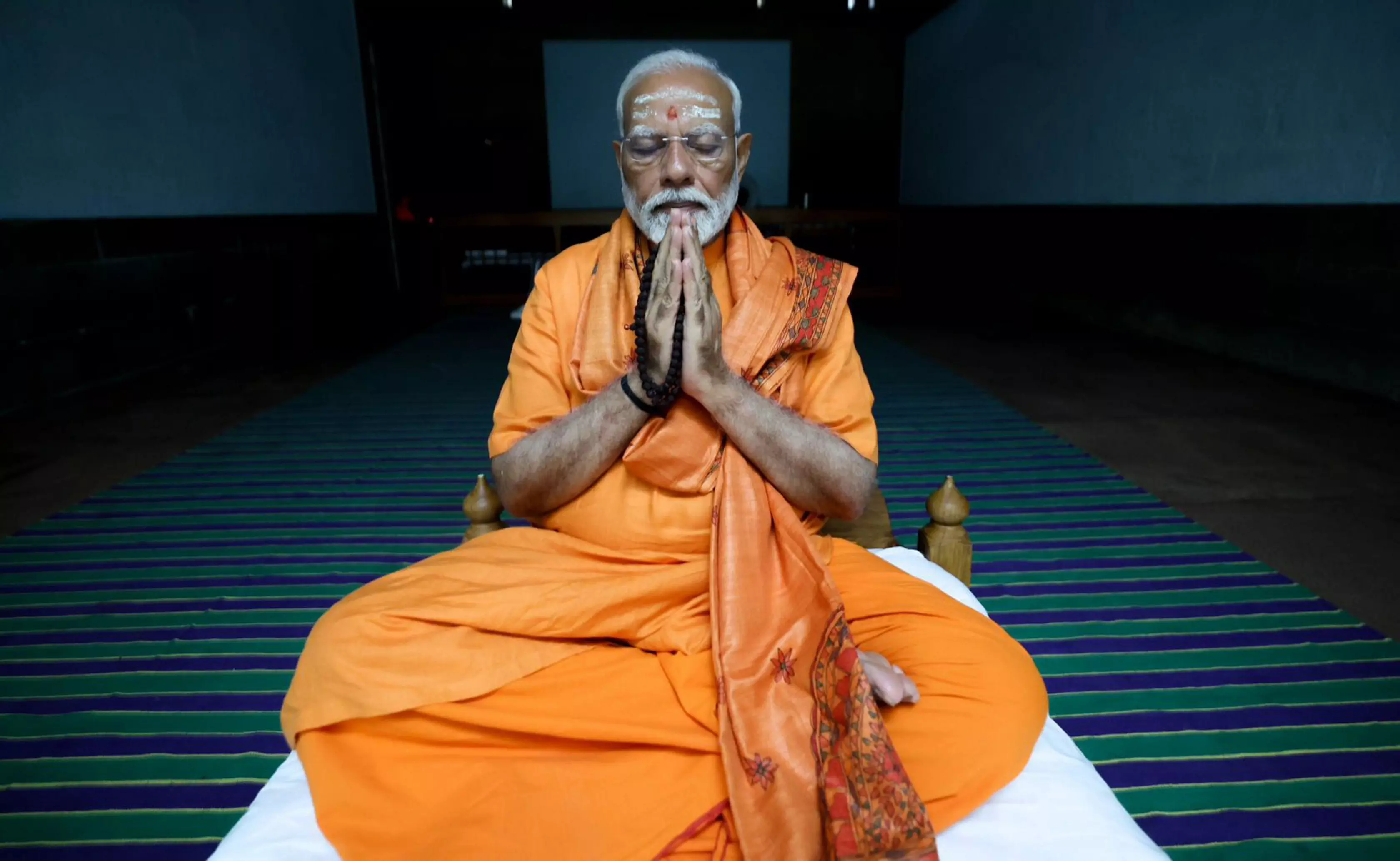After wrapping up the toughest election campaign of his career, in which he addressed 206 public meetings and gave 80 interviews, Prime Minister Narendra Modi flew to the rock monument of Kanyakumari, on the southernmost tip of mainland India, for a two-day retreat. Over the two days, Modi planned to spend the time in meditation, a kind of detoxification process that he undertakes after every major election.
Modi’s decision to meditate comes just hours before the crucial final stages of India’s Lok Sabha elections, and opposition parties are clearly concerned about its impact on people’s voting decisions. Opposition parties have filed a complaint with the Election Commission of India, asking the media not to cover Modi’s meditation, as they see it as an attempt to influence voters during the two-day silence period before the elections.
From a neutral perspective, Mr Modi’s meditation is an entirely personal matter and it is up to his free will as to how he spends his free time. The opposition party has no say in how he spends his time – meditating, praying, scuba diving, paragliding, watching his favourite movies or even sleeping at home. The opposition party cannot interfere in his private life and dictate how he spends his time.
Similarly, the opposition party cannot dictate what media outlets report. If readers or viewers are interested in reading or seeing a particular event, then media organizations will report it.
Even if the Election Commission had instructed the media to refrain from reporting, it would have been a violation of the fundamental rights of the people and tantamount to suppression of freedom of the press, which is why the Election Commission has not issued any specific instructions in this regard to the BJP, Prime Minister Modi or the media.
If the Opposition believes Modi’s meditation is a passive campaign that violates the model code of conduct, so be it – after all, there is nothing to stop Rahul Gandhi or Mamata Banerjee from engaging in the same activity.

